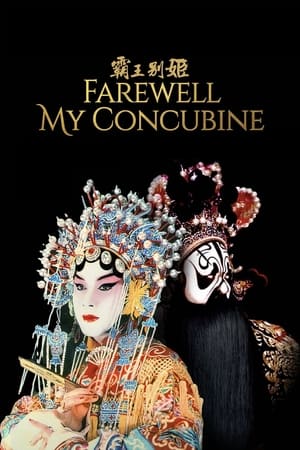
Farewell My Concubine
**An excellent film.** I was really curious to see this movie, because as far as I can remember it was the first Chinese movie I saw. Before I saw it, I read a little about it, and I was quite impressed to see how the film did well in the West, and managed to infuriate Chinese Communist censors. However, I fear that I was not fully prepared for what awaited me. In fact, the film is truly brutal, in every sense of the word. Director Kaige Chen took a well-known and respected book for his film, but put all the focus on an almost visceral realism. The film is an epic that spans a large period of time, between 1924 and 1977, that is, very troubled years in Chinese history, which includes the entire period of war against Japan and the invasion of Manchuria, as well as the cultural revolution. Maoist. At the same time, it reveals the backstage of Cantonese opera, a traditional Chinese cultural style. In the film, two young apprentices live a cruel and unhappy life at the opera school, with daily beatings and various abuses, including sexual abuse. One of them will play the female characters in the stories, like a transvestite, since women are not allowed on stage. Throughout the film, there is a lot of confusion between life and art, and we often feel that these actors are mixing things up, living their characters in real life and transposing their real life to the stage. I don't know any of the actors in the cast, but I really liked their overall work, and the way they play opposite each other. The film also has extraordinary scenarios, full of realistic details, such as the construction of buildings, the lanterns. The actors' costumes also deserve applause, especially the characters in the opera, with all those fabrics and those strong face paints. Finally, a word for the wonderful cinematography, excellent opening credits and soundtrack.
